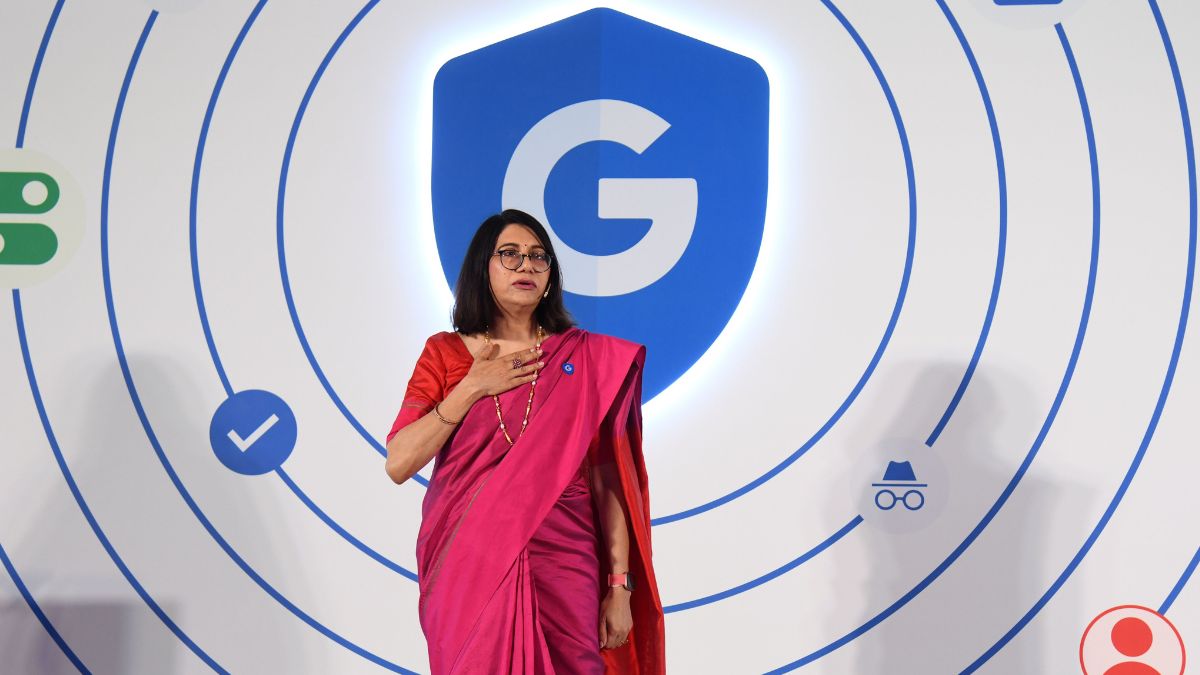Fight AI with AI: How Google takes on cyber scams in India
 Google country manager Preeti Lobana | Sanjay Ahlawat
Google country manager Preeti Lobana | Sanjay Ahlawat
“Scams and scamsters are shape shifters,” said Preeti Lobana, vice president and country manager of Google in India.
She would know, for Google has, in its efforts to tackle the dangers on the web, blocked six crore attempts to install high-risk apps, labelled 50 crore messages as suspicious, 1.2 crore listings as fake on Google Maps while 2.5 billion suspicious URL warnings were issued.
Cyber crimes could cost about 14 trillion dollars globally by 2028, according to estimates, and why not, with financial fraud making up 75 per cent of all cyber crimes presently?
But help is at hand, with governments, regulators and big tech harnessing the power of artificial intelligence (AI) to combat the rising menace in real-time.
The big daddy of them all, Google, announced its Safety Charter for India’s AI-led transformation and new commitments across cybersecurity, fraud prevention and responsible AI.
MORE | From AI-powered smartglasses to prosthetics: Here are major tech products for Divyangjan ahead of ‘AI for Empowering PwDs’ summit
Accordingly, Google.org has committed an additional $5 million to The Asia Foundation, expanding the APAC Cybersecurity Fund to support more than 10 new cyber clinics, including partnerships with Indian universities to train MSMEs and students.
In parallel, Google announced a collaboration with IIT-Madras in advancing Post-Quantum Cryptography, developing next-gen anonymous tokens that enable secure, privacy-first digital interactions for the future.
Google said it was also working closely with the Department of Telecommunications, Home Ministry and SEBI to support cyber security efforts through centralised intelligence sharing.
“For our internet to realise the potential of India and all Indians, safety, security, and trust cannot be an afterthought,” said Lobana, adding, “For India to become Viksit Bharat, we must build and maintain trust in the internet and our digital infrastructure. Our AI systems constantly evolve to detect new threats and scams, even recognising malicious patterns in attacks that have never been seen before. This scalable capability helps us narrow or even eliminate the gap between defenders and attackers, which represents a huge leap forward in security.”
While India was booming digitally, it has come coupled with the rise of sophisticated online threats, said Heather Adkins, Vice President of Engineering at Google Security. “AI isn’t just narrowing the gap between attackers and defenders—it’s eliminating it in some cases. This defensive potential is game-changing, demonstrating how AI can serve as a tireless, transformative force keeping platforms and users secure,” she said.
Google officials said its AI Charter for India was based on three principles —keeping the end user safe, cyber security for government and enterprises & building AI responsibly (safely and ethically).
Business